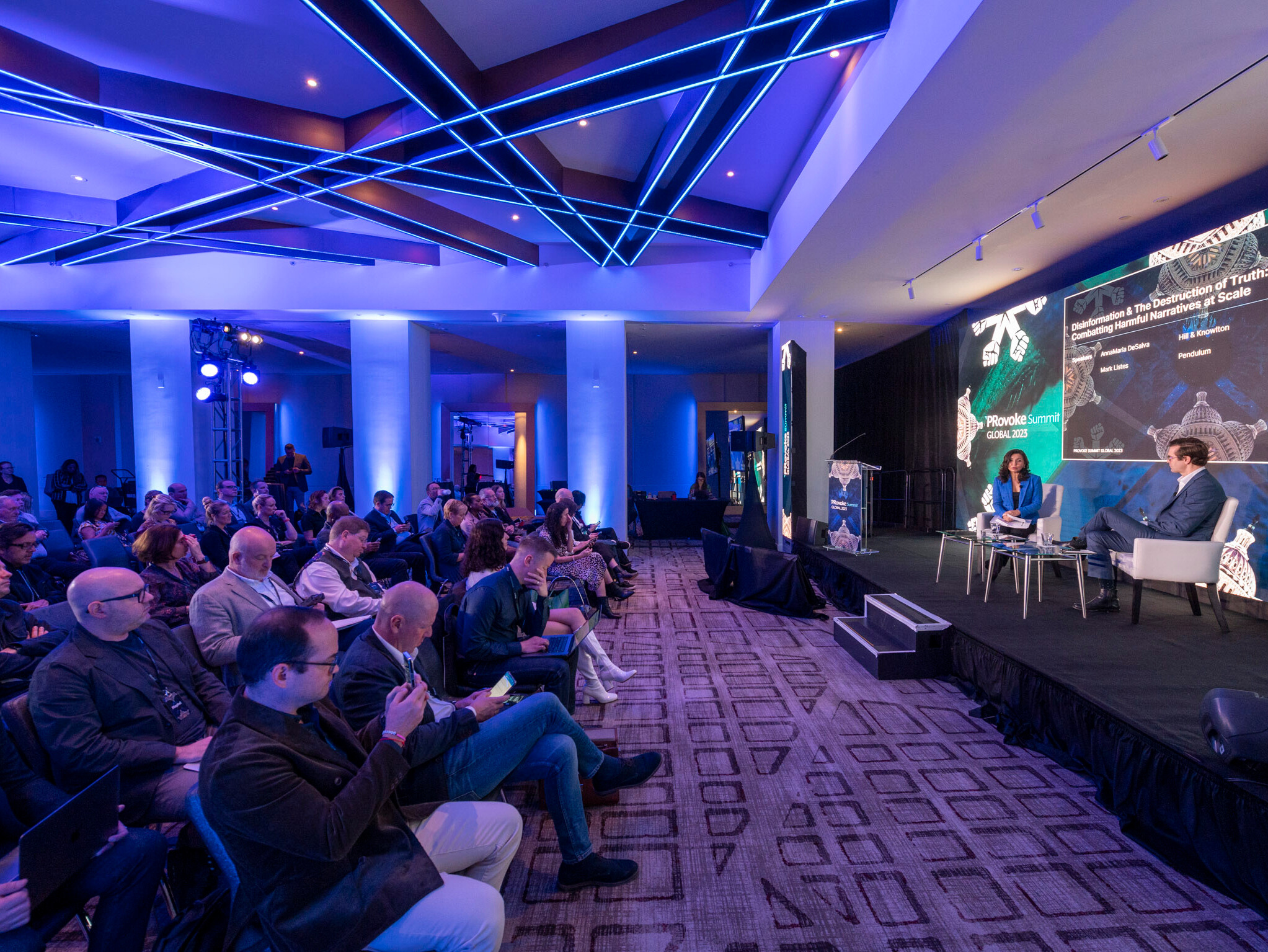Arun Sudhaman 07 Nov 2023 // 6:41PM GMT

WASHINGTON, DC — In a world where information travels at the speed of light, the battle against disinformation has intensified. Mark Listes, CEO of Pendulum Intelligence, and AnnaMaria DeSalva, CEO of Hill & Knowlton, sounded the alarm on the growing menace of fake news and the need for proactive measures during a discussion at today's PRovokeGlobal 2023 Summit in Washington DC.
Listes highlighted the unprecedented access to fake information in today's digital age. He emphasized that a 20-year-old with an iPhone and a TikTok account can create a story that goes viral overnight, making it increasingly challenging to distinguish fact from fiction.
DeSalva, meanwhile, underscored the rapid spread of disinformation, which now outpaces the dissemination of legitimate information by 70%. She pointed out that the viral nature of disinformation makes it nearly impossible to control, resulting in an annual cost of $78 billion to the global economy.
Listes stressed that the threat target landscape has expanded significantly, and the notion that crises only affect large corporations or high-profile entities no longer holds true. In today's information-driven world, everyone is susceptible to the ramifications of disinformation.
"Today, we have the best access to fake information of all time," he said. "The threat target landscape has really expanded in scope.The world of 'this doesn’t happen to me because I’m not big enough or not in the news', doesn’t exist anymore."
Furthermore, Listes emphasized the importance of proactive engagement in addressing the challenges of mis and disinformation. Companies and entities that can respond swiftly and effectively are more likely to emerge from crises unscathed. To do so, he advocated for early detection, a well-prepared crisis framework, and the right tools to navigate the vast information landscape.
Listes added, "We must operate under the assumption that everything that can be said has already been said somewhere. The key is to identify it early and determine whether it warrants allocation of time and resources."
Acknowledging the chaotic nature of the contemporary behavioral landscape, Listes pointed out that technology, while contributing to the problem, can also be part of the solution.
DeSalva highlighted the symbiotic relationship between disinformation and polarization, which poses a pressing challenge. She emphasized that employers need to create a safe and productive environment that promotes civil dialogue and collaboration to address these issues.
Listes reiterated the dynamic nature of the information landscape, cautioning against waiting for a regulatory silver bullet. He stressed the importance of deploying technology alongside advisory and in-house services to withstand the inevitability of attacks and to adapt to ever-evolving threats.
As risks associated with disinformation continue to grow, DeSalva noted a rising need for reputation capital. Many companies are forming committees or adjusting their charters to better manage reputation risk, recognizing that merely conducting business well is no longer sufficient.
"In general, I feel the governance environment is becoming more attuned to reputation risk," said DeSalva.
In closing, Listes highlighted the importance of maintaining a realistic perspective in the fight against disinformation. While challenges abound, he emphasized that this should be seen as an opportunity to build on existing knowledge.
"This is a conversation full of doom and gloom. Quite frankly, it should be," said Listes. "We have to understand what the landscape looks like. We have to know what is going on. At the same time, we also know how to handle crisis, this shouldn’t be all doom and gloom.
"This should be something where we are able to build on what we’ve known. Don’t go down some silver bullet road of technology and regulation. Trust what you know and augment that with the best partners and resources that you have."



































.jpg)

















